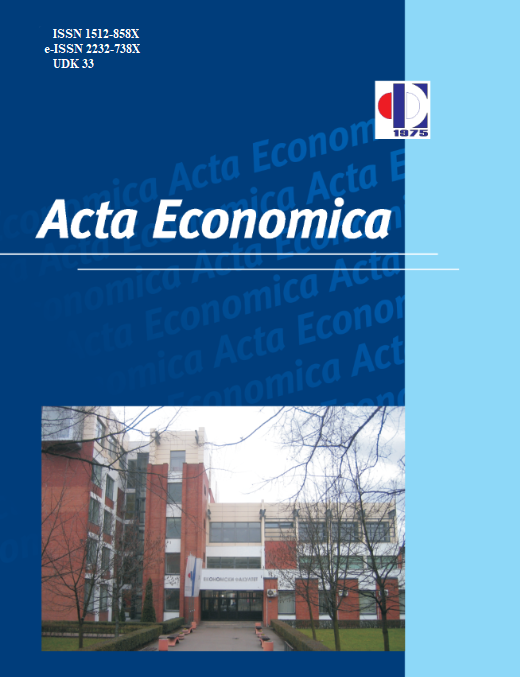Кластеризација - нова парадигма или још један теоријски модел // Clustering - A New Paradigm or Another Theoretical Model
DOI:
https://doi.org/10.7251/ACE1522113PAbstract
Резиме: Економија Босне и Херцеговине (БиХ) и Републике Српске још увијек не показују знакове снажнијег опоравка и изласка из економске кризе. За разлику од великог броја развијених земаља свијета које су препознале могућности кластеризације као једног од модела јачања малих и средњих предузећа (МСП) и превазилажења негативних ефеката глобалне економске кризе, у БиХ кластетиризација није препозната као модел економског развоја. Циљ овог истраживања је тражење одговора на питања који су доминантни фактори који утичу на удруживање МСП у кластере у РС, а који фактори демотивишу и успоравају кластеризацију МСП? Истраживање је спроведено на територији десет градова и општина РС методом случајног узорка од 106 МСП (85 предузећа из истраживачког узорка нису чланови кластера, док 21 предузеће из узорка су чланови кластера). Дошли смо до закључка да су у РС кластери препознати као једна од могућности да се подстакне развој МСП, а тиме и конкурентност националне привреде, али да тај процес није далеко одмакао. Мање од 30 анкетираних предузећа из узорка у РС упознато је са радом кластера уопште. Испитаници који не познају најзначајније кластере нису упознати са улогом кластера. Уласком у кластер, предузећа се развијају и расту што потврђује раст просјечног броја запослених у предузећима, члановима кластера, у првом кварталу 2013. године, у односу на годину уласка ових предузећа у кластер. Предузећа, чланови кластера, у највећем су броју случајева само дјелимично задовољна радом кластера. Што се тиче побољшања рада кластера, 61,9% анкетираних сматра да би снажнија државна помоћ утицала на побољшање рада кластера, а 19,05% сматра да би томе допринио активнији рад кластер менаџера.
Summary: Economy of Bosnia and Herzegovina (B&H) and Republic of Srpska is still not showign a signs of recovery and out of the economic crises. Unlike the large number of developed countries that have recognized the possibilities of clustering as a model of strengthening small and medium-sized enterprises (SMEs) and overcoming negative effects of the global economic crisis in B&H clustering is not recognized as a model of economic development. The aim of the research is seeking an answer on the question which dominant factors affecting the association of SMEs in clusters in Republic of Srpska and which factors are discouraging and slowing down this association? The research was conducted on the territory of the ten cities and municipalities in Republic of Srpska through random sampling method consisted by 106 SMEs (85 companies from research samples are not members of the cluster, while 21 companies in the sample are members of the cluster). We came to the conclusion that in the Republic of Srpska clusters are recognized as one of the possibilities to encourage the SMEs development, and thus the competitiveness of the national economy, but the process has not gone far. Less than 30% of the companies in the sample in the Republic of Srpska is familiar with the work of clusters in general. Entering the cluster, companies evolving and growing as evidenced by the growth in the average number of employees in companies, members of the cluster, in the first quarter of 2013, compared to the year of entry of these enterprises in the cluster. Enterprises which are cluster members, in most cases are only partially satisfied with the performance of the cluster. Regarding the improvement of cluster, 61,9% of respondents believe that greater state support would affect the improvement of cluster, and 19,05% think that active engagement of cluster managers would contribute as well.

